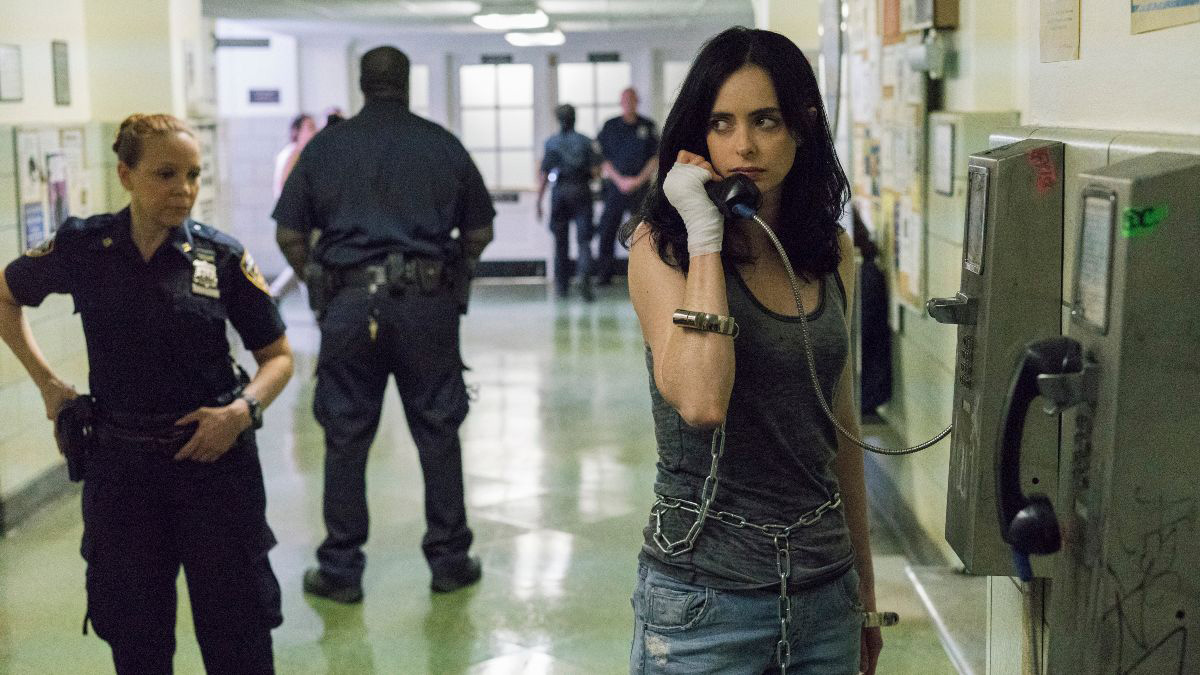Netflix Review: Jessica Jones, Season 2
 supplied
suppliedJessica Jones Season 2
Created by: Melissa Rosenberg
Starring: Krysten Ritter, Rachael Taylor, Eka Darville, and Carrie Anne-Moss
Available on Netflix
While not being as wholly exciting or consistent as Jessica Jones S1, this second season does have periodic moments of thoughtfulness and perspective for anybody who loved the first season.
After the events of The Defenders, Jessica Jones finds herself at the center of anti-superhero sentiment and mistrust in New York City, especially after her murder of Kilgrave. At her private detective agency Alias Investigations, she encounters troubled individuals and clients with superpowers hunted down by a powerful assassin, all connected to the shadowy organization IGH, the same group that gave Jessica her superpowers. Still traumatized over the death of her family and her mysterious origins at IGH, Jessica Jones endeavours to track down the assassin and uncover the truth about her past.
One of the major reasons for the first season’s success was the villainous character of Kilgrave, played by David Tennant. He was unapologetically abusive, wickedly manipulative, and his hypnotic powers made the whole first season filled with dread and unease. With this second season, there is no “real” antagonist to build the whole season around, as the assassin is revealed mid-season to be her sympathetic revived mother Alisa with incredible super-strength and terrifying anger issues. As a result, everything becomes slower and more introspective into Jessica as she comes to understand and confront her powerful reservoir of anger and rage, qualities her murderous mother possesses and is often unable to control.
This season is difficult for me to decide upon since the first half is so inconsistent and sluggish, yet the latter half is where the majority of its major themes of female anger, victimhood, and trauma are further developed and explored. Yes, Kilgrave may be dead, but the fury of trauma in Jessica and her mother still lives on and threatens to consume both of them. Perhaps I simply don’t get the entire picture of what Jessica Jones is attempting to achieve, but it does start on the right path to continuing Jessica’s character, even if it is difficult to give such a long commitment to watch in its entirety.
However, Jessica Jones does have legitimate issues that give me pause to wholeheartedly recommend this season as I have with the first season. Most of its side story lines do not add anything worthwhile to the show, as I could care less about Jeri’s struggle with ALS or Trish’s relapse into addiction and these feel more like vignettes than actual character pieces. The show does not feel as unified and engaging without a singular antagonist that Kilgrave so brilliantly brought to the first season. And, of course, the show falls into the cumbersome trap, as all the Marvel Netflix shows have, from having to drag out their seasons to 13 episodes where perhaps they need not be.
For its thematic ambitions and troubled execution, I would still nonetheless recommend Jessica Jones S2. Perhaps I might’ve missed all the little idiosyncrasies and character moments that most other female reviewers have caught onto. Perhaps my frustration and boredom with the first half of the season soured my taste for the rest of the show. In any case, Jessica Jones continues to demonstrate why the Marvel Netflix shows continue to provide a “mainstream alternative,” however oxymoronic that might sound, for feminist perspectives and observations to the modern superhero genre in the Marvel Cinematic Universe.




